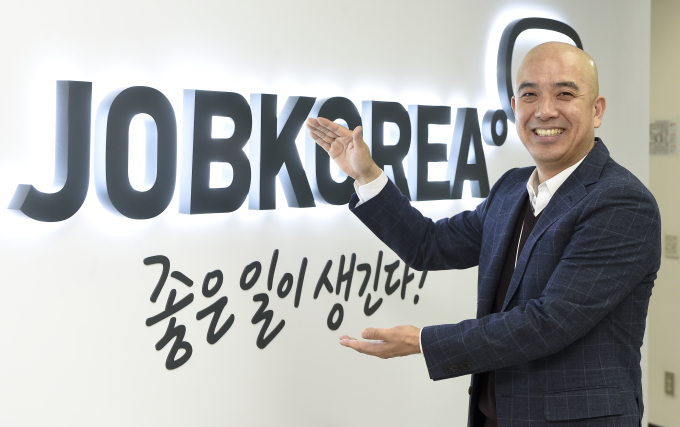M&As
Australia’s SEEK looking for financial partner to bid for JobKorea
By Feb 05, 2021 (Gmt+09:00)
4
Min read
Most Read
MBK’s Korea Zinc takeover attempt to spur search for white knights


Korea Zinc, MBK face proxy war for zinc smelter


Korea Zinc shares skyrocket after buybacks in tender offer


Lotte to liquidate rubber JV in Malaysia, sell overseas assets for $1 bn


Samsung to unveil 400-layer bonding vertical NAND for AI servers by 2026



SEEK, Australia’s largest job site, has been in discussions with private equity firms to put in a binding bid in a consortium for South Korea’s top recruitment portal JobKorea, in a deal estimated at around 1 trillion won ($890 million).
The Australian job search firm is looking to enter the Korean market through JobKorea, according to investment banking sources on Feb. 5. It is the only strategic bidder for the Korean online platform among the shortlisted buyers, including Affinity Equity Partners, CVC Capital, MBK Partners, TPG, Hong Kong-based PAG, Permira and the US-based TA Associates.
Among the financial investors, Affinity Equity, MBK, CVC and TPG are tipped as likely candidates to team up with SEEK, given their serious interest in JobKorea.
Seoul-based private equity firm H&Q put the entire stake in the job search site up for sale last year. It will receive binding bids around the end of this month. Morgan Stanley is managing the sale.
JobKorea is a rare platform business put on South Korea’s M&A market. Its high EBITDA margin of close to 50% is fueling competition for the company, pushing its estimated value to around 1 trillion won, above the seller’s asking price of 700 billion won.
H&Q acquired 100% of JobKorea for a combined 205 billion won between 2013 and 2015 from Monster Worldwide Inc., a US-based job listing service and parent company of the largest US job portal Monster.com. H&Q has already pocketed most of its investment money from dividend income.
SEEK has held discussions with four of the shortlisted financial investors, after its previous talks with another PEF broke down. The Melbourne-based company is currently carrying out due diligence on JobKorea, in which it may take a minority stake, with its financial partner holding management rights, said the sources.
Founded in 1997, SEEK has expanded its presence into 18 countries, including New Zealand, China, Brazil, Mexico, Africa and also Southeast Asia, deriving over half of its revenue from overseas markets. It has forayed into those markets by teaming up with financial investors.
PEFs are weighing pros and cons of joining hands with SEEK, which could reduce their acquisition price and allow them to apply SEEK’s management knowhow to JobKorea. After forming a consortium, SEEK could secure preemption rights to buy the remaining shares in JobKorea, which will help its financial partner exit from the Korean job portal.
But valuations on JobKorea vary widely between SEEK and the PEFs, meaning their discussions could be protracted, the sources added.
POTENTIAL COMPETITORS
Bidders for JobKorea are wary of Naver Corp.’s advance into the online job search market. They are now studying its possible impact on the online recruitment market in which JobKorae commands 40%.
Last December, the dominant Korean Internet portal launched a job search service by collecting job postings from 15-16 recruitment sites, excluding JobKorea. Back in 2017, Naver acquired AI-based business card management application Remember, which could evolve into employment services.
Additionally, some bidders devalued JobKorea’s database and its data quality after conducting due diligence, saying the company has failed to make appropriate investments.
To enhance JobKorea's value, the bidders are thinking about transforming its job listing-focused business into the site matching job seekers with posted jobs, similar to LinkedIn’s business model. JobKorea operates two platforms: JobKorea, for full-time job listings and Albamon, for part-time listings.
SEEK, listed on Australia’s stock market, has transformed from an online employment marketplace into employment and education-related services provider, including helping employers find candidates for advertised jobs. It is currently valued at 20 times EBITDA.
South Korea’s online recruitment market is expected to gain momentum as the country’s top conglomerates such as Hyundai and SK are doing away with the traditional massive hiring system that took place once or twice a year on a regular basis. They are now switching into the frequent recruitment system, or hiring whenever in need.
“The employment market size for both full-time and part-time jobs stands at only 300 billion won, too small for Naver and Kakao to enter by buying an existing player or launching their own service for several hundreds of billion won,” said a senior IT company official, asking not to be named.
“My understanding is that both Naver and Kakao are preparing to jump in when the market size is big enough and the LinkedIn-style recruitment system becomes commonplace in our country. They are now monitoring the market,” he told Market Insight, capital news outlet of The Korea Economic Daily.
Kakao Corp. is South Korea’s top mobile messenger app operator. It has been expanding into payment, entertainment and taxi-hailing services.
Write to Chae-Yeon Kim and Jun-ho Cha at why29@hankyung.com
Yeonhee Kim edited this article.
More to Read
Comment 0
LOG IN




